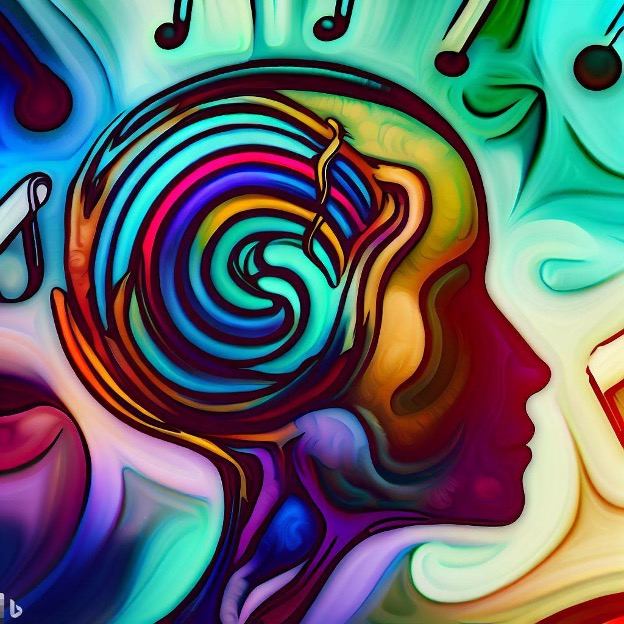Humanity needs to have an uncomfortable conversation about suicide. It’s a growing problem in the West and one that we don’t give nearly enough attention. Around 800,000 people kill themselves every year, according to the World Health Organization. After car accidents, it’s the leading cause of death for people between ages 15 and 29. Clearly, this is a problem that is affecting people young and old on a global scale, and despite how taboo suicide is, we need to talk about it.
For the third year in a row, the life expectancy in the United States has dropped, according to Smithsonian Magazine. This is alarming because life expectancy hasn’t seen such a prolonged dip in the U.S. since 1915, around the time of World War I and the disastrous 1918 flu pandemic. What’s caused this sustained drop? Researchers attribute the decline to drug overdoses and suicide, which are often related phenomenon.
So what’s causing all this? And what can possibly be done to stop the rising tide of suicides?
Deaths of Despair
Suicide is a controversial topic in the U.S. and even discussing it can bring up fears that it will encourage it. We do have to be extremely careful when discussing this topic because it’s so sensitive. But ignoring it will not make it go away.
The first thing to remember is those suicidal thoughts do not make you a “crazy” or bad person. Many people have them, what’s important is not acting on them. It’s necessary to be upfront about these desires and talk to others who can help you.
But what is causing this shift in the first place? Two researchers, Anne Case and Angus Deaton, have been studying this issue for a long time. They call these deaths by suicide and drugs, including alcohol, “deaths of despair.”
“These deaths of despair have been accompanied by reduced labor force participation, reduced marriage rates, increases in reports of poor health and poor mental health,” Anne Case told NPR. “So we think of this as people, either quickly with a gun or slowly with drugs and alcohol, are killing themselves. Under that body count, there’s a lot of social dysfunction that we think ultimately we may be able to pin to poor job prospects over the life course.”
Deaths of despair may be largely caused by decades of stagnating wages, few job opportunities, and growing dysfunction in society. While social media and the internet may make connecting online easier, connecting in person is more difficult than ever. It’s hard to make friends in real life, it’s hard to find decent jobs that give people fulfillment or meaning. To make matters worse, the healthcare infrastructure is crumbling in the United States, all of which makes people feel even more hopeless when faced with a serious illness, and ultimately may lead to suicidal ideation.
Thankfully, there is good news. More people are recognizing this issue as the critical problem that it is. People are talking about it more and it features more prominently in TV shows and movies, such as “13 Reasons Why” and “A Million Little Things.” More folks are beginning to understand that there should be no shame or stigma attached to feeling depressed or wanting to end your life.
And with that comes practical solutions, reexamining paradigms and exploring new ways of thinking about mental health.
Ketamine Rapidly Reverses Suicidal Ideation
A rapidly expanding drug in the treatment of mental illness is ketamine. Ketamine is a drug that has been used in medicine since the 1960s but was accidentally discovered to help people with depression in the mid-‘90s. A few decades later, researchers and doctors started paying close attention to this research and began offering ketamine infusions at clinics across the country.
Ketamine has shocked the world of psychiatry because the positive results from using it for depression are so rapid. It can relieve symptoms of depression in just a few hours or days.
Traditional antidepressant drugs like Prozac can take weeks or months to start working. But that’s a problem when someone is thinking about suicide—time is of the essence when it comes to thoughts of self-harm.
A growing body of medical research on ketamine has shown that it can have “an effect on suicidal thoughts independent of depression and anxiety,” according to a 2014 trial published in the Journal of Psychiatric Research. In the study, 133 patients with treatment-resistant depression (meaning that they had tried two or more different treatments for depression without results) were given a ketamine infusion. Patients saw a reduction in their wish to die in just 40 minutes.
“Reductions in suicidal ideation following ketamine infusion are related to, but also independent of, reductions in depression and anxiety,” the researchers wrote. “As interventions for suicidal ideation are critically needed in psychiatry, findings suggest that evaluations of ketamine can be used to further investigate the neurobiology and best treatments for suicidal individuals.”
It’s clear that we have a suicide problem that is only growing in the world. We can’t fix income inequality or healthcare access or other underlying structural problems in our society overnight—but in the meantime, we need to help people with their psychological pain.
Can ketamine help steer patients away from suicidal thoughts? There is growing evidence to say yes. Ketamine is a safe drug that can successfully treat depression, anxiety, and suicidal ideation.
To schedule an appointment, give us a call at Bespoke Treatment at 833-867-2329.


























